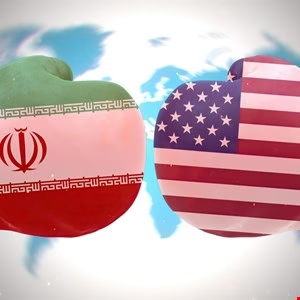US Warns of Increased Iranian Cyber Threats After Military Strikes

▼ Summary
– The US government warns of increased cyber-attacks by Iran state-sponsored actors and hacktivists following US military strikes on Iranian targets.
– A DHS advisory highlights heightened risks of both cyber and physical revenge attacks due to escalating US-Iran tensions.
– Iranian cyber actors have previously targeted US infrastructure, politicians, and election campaigns, including hacking a Trump campaign website.
– Experts advise US organizations to enhance vigilance and follow cybersecurity best practices to mitigate potential Iranian cyber threats.
– Iran’s cyberespionage efforts focus on gathering geopolitical intelligence, often targeting individuals and sectors like telecoms and hospitality.
The United States has issued urgent warnings about potential cyber threats from Iranian-backed groups following recent military strikes against Iranian targets. Government agencies caution that both state-sponsored hackers and independent activists may retaliate against American networks, escalating tensions in an already volatile geopolitical climate.
A National Terrorism Advisory System Bulletin released by the Department of Homeland Security (DHS) emphasized the increased risk of cyber intrusions. According to the advisory, pro-Iranian hacktivists are likely to launch low-level attacks, while more sophisticated operations could originate from groups directly tied to Tehran. The warning follows U.S. airstrikes on Iranian nuclear facilities, which officials described as a decisive military action.
The conflict stems from long-standing tensions over Iran’s nuclear program and its regional influence. With direct U.S. involvement now confirmed, experts warn that critical infrastructure, businesses, and political entities could become prime targets. The DHS noted that violent extremists might also mobilize if Iranian leaders call for retaliation.
Iran’s history of cyber aggression against the U.S. and its allies adds credibility to these concerns. Over the past year, Iranian hackers have repeatedly targeted industrial control systems, water utilities, and election-related infrastructure. In early 2025, sanctions were imposed on Iranian cyber operatives linked to attacks on programmable logic controllers used in critical sectors.
Election interference has also been a recurring tactic. Before the 2024 U.S. presidential race, Iranian operatives breached campaign websites, aiming to spread misinformation and access sensitive data. These incidents highlight Tehran’s willingness to exploit digital vulnerabilities for political leverage.
Security experts urge organizations to bolster defenses against potential disruptions. John Hultquist of Google’s Threat Intelligence Group noted that while Iran’s disruptive cyber capabilities vary, their psychological impact is often exaggerated. He advised businesses to adopt ransomware-style precautions, including multi-factor authentication and network segmentation.
Espionage remains another key concern. Iranian hackers frequently target telecoms, airlines, and hospitality firms to gather intelligence on individuals of interest. High-profile figures involved in Iran policy should remain vigilant against phishing and social engineering schemes.
As geopolitical tensions escalate, proactive cybersecurity measures will be crucial in mitigating risks. Organizations must stay alert to emerging threats while avoiding unnecessary panic that could inadvertently amplify the attackers’ influence. The situation underscores the growing intersection of global conflict and digital warfare, where retaliation can unfold silently across networks rather than on traditional battlefields.
(Source: INFOSECURITY)



